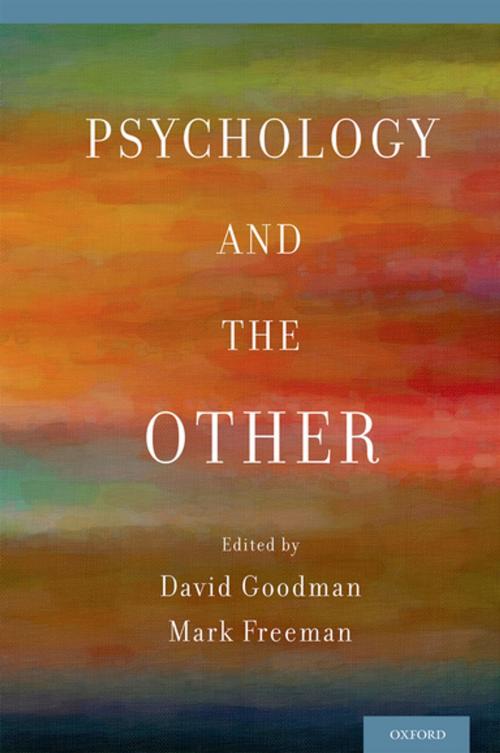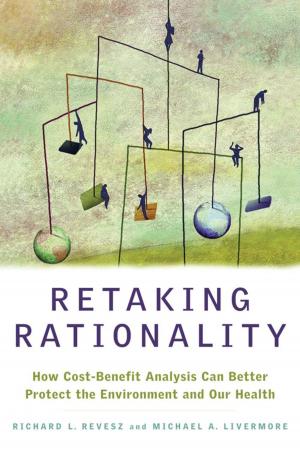| Author: | ISBN: | 9780199324828 | |
| Publisher: | Oxford University Press | Publication: | July 2, 2015 |
| Imprint: | Oxford University Press | Language: | English |
| Author: | |
| ISBN: | 9780199324828 |
| Publisher: | Oxford University Press |
| Publication: | July 2, 2015 |
| Imprint: | Oxford University Press |
| Language: | English |
The figure of the Other is an important though underutilized vehicle for exploring and reconceptualizing classic psychological and philosophical issues, from identity and purpose to human frailty and suffering. Moreover, it can be used to reorient inquiry toward aspects of the human condition that are often regarded as secondary or peripheral--for instance, our responsibility to others and to the environment. A broad spectrum of disciplines including psychology, philosophy, theology, and religious studies speak about the challenges we face in encountering the Other vis-à-vis our receptivity, openness, and capacity to entertain the stranger in our midst. Through constructive critical exchange, Psychology and the Other engages such perspectives on the Other from various subdisciplines within psychology and related disciplines. The volume uses the language of the Other as a vehicle for rethinking aspects of psychological processes, especially within the therapeutic context. As a group, the contributors demonstrate that the language of the Other may be more fitting than the egocentric language frequently employed in psychology. They also embrace the challenge to create new theories and practices that are more ethically attuned to the dynamic realities of psychological functioning. The book is organized into three sections. The first deals with foundational philosophical concerns and provides an introduction to the project of "thinking Otherwise." The second section brings these fundamental philosophical concerns to bear on the therapeutic situation, especially in the realm of relational psychoanalysis. The final section of the book addresses concrete psychological situations in which the Other figures prominently and where the power of thinking Otherwise is most visibly demonstrated.
The figure of the Other is an important though underutilized vehicle for exploring and reconceptualizing classic psychological and philosophical issues, from identity and purpose to human frailty and suffering. Moreover, it can be used to reorient inquiry toward aspects of the human condition that are often regarded as secondary or peripheral--for instance, our responsibility to others and to the environment. A broad spectrum of disciplines including psychology, philosophy, theology, and religious studies speak about the challenges we face in encountering the Other vis-à-vis our receptivity, openness, and capacity to entertain the stranger in our midst. Through constructive critical exchange, Psychology and the Other engages such perspectives on the Other from various subdisciplines within psychology and related disciplines. The volume uses the language of the Other as a vehicle for rethinking aspects of psychological processes, especially within the therapeutic context. As a group, the contributors demonstrate that the language of the Other may be more fitting than the egocentric language frequently employed in psychology. They also embrace the challenge to create new theories and practices that are more ethically attuned to the dynamic realities of psychological functioning. The book is organized into three sections. The first deals with foundational philosophical concerns and provides an introduction to the project of "thinking Otherwise." The second section brings these fundamental philosophical concerns to bear on the therapeutic situation, especially in the realm of relational psychoanalysis. The final section of the book addresses concrete psychological situations in which the Other figures prominently and where the power of thinking Otherwise is most visibly demonstrated.















